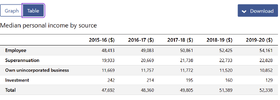- Joined
- 28 August 2022
- Posts
- 7,022
- Reactions
- 11,356
Shooting gallery bang, bang, bangThanks to those contributors taking this along. Belli drills deep, and others of course.
I'm glad I'm not being targeted! And as mentioned, don't have all your eggs in the same basket, otherwise the ducks, all in a row, get taken out.




